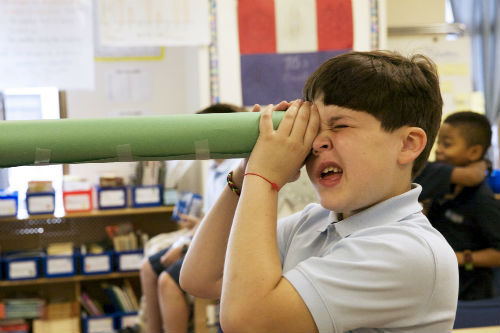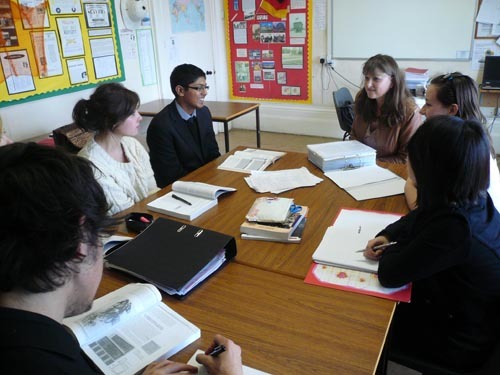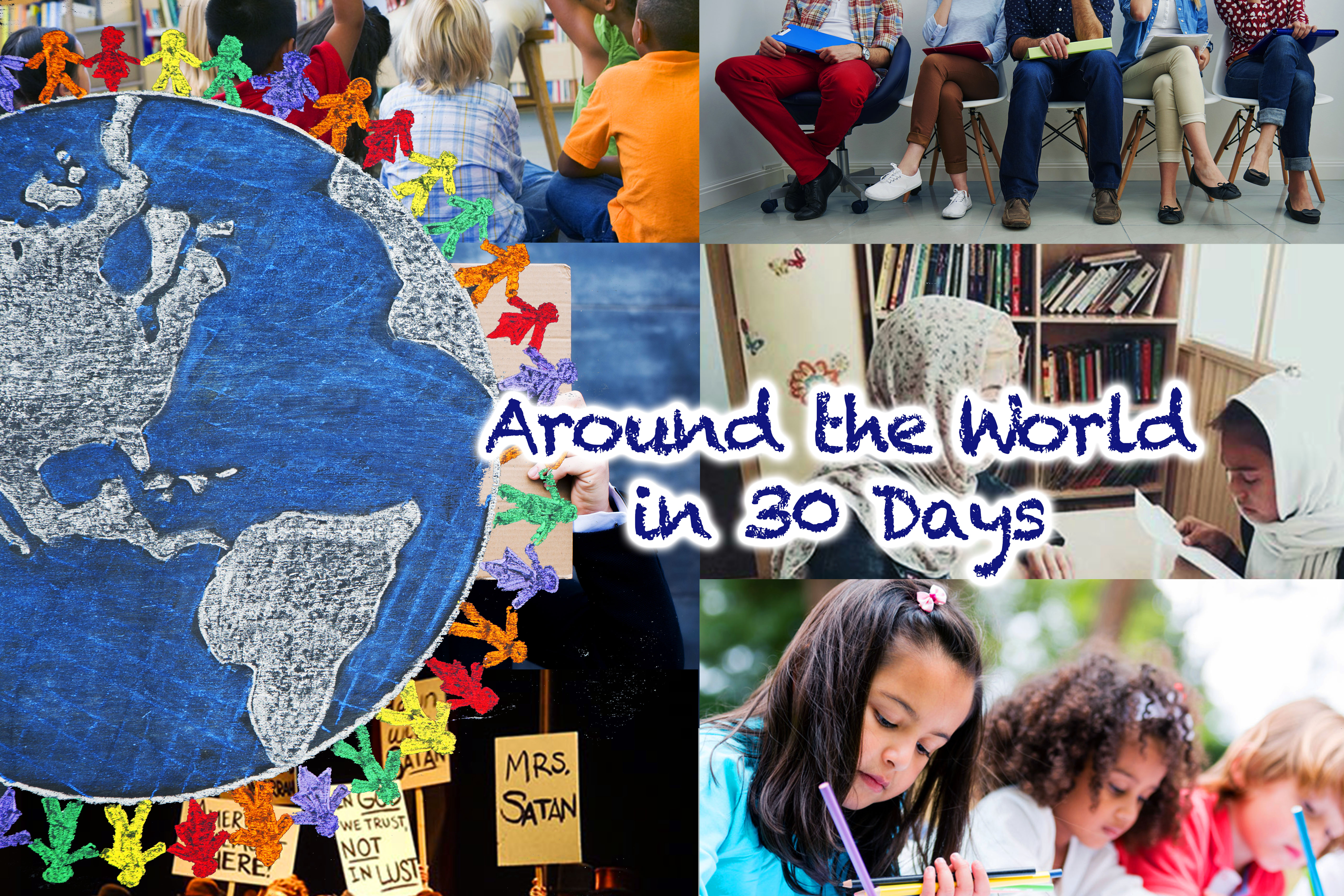C. M. Rapporto Global Education di Rubin
A maggio, I continued my conversations with thought leaders from China to New York who sketched out for me the conflicting overlaps between creativity, innovazione, riforma, and testing, and shared their efforts to create coalescence between them. Nel frattempo, my Top 12 Global Teacher Bloggers contributed some much-needed tips on one of the hottest topics for this time of the school calendar year, i.e. combating stress in the classroom.
Secondo l'Organizzazione Internazionale del Lavoro, un'agenzia delle Nazioni Unite, la disoccupazione globale è pari a 201 milione di persone in 2014, 1.2 milioni in più rispetto al 2013, e questo numero è destinato ad aumentare a 212 milioni per 2019. L'attuale tasso di disoccupazione mondiale tra 15 a 24 anni di 13%, che è anche previsto un aumento, è quasi 3 volte superiore al tasso di disoccupazione generale. Una mancata corrispondenza di competenze si crede di essere un fattore importante.
“How do we best prepare students for the dramatic socio-economic demands of a digital world in a global age?” In the hope of finding answers to this question, I helped organize the Oppi Festival at Leman High School in New York City. Full of innovation and debate, the festival’s timely themes of Gender: It Matters, Global Collaboration, and Living: Le Arti, allowed all its world-renowned participants to reflect deeply in a down-to-earth atmosphere on the future of learning. I sincerely hope there will be many more festivals like Oppi in cities all over the world. As to my question about preparing young people for the future, I greatly enjoyed the many perspectives shared, but especially the one from Andy Hargreaves: “by developing values that reconnect effort with reward; con la creazione del capitale sociale, di cittadinanza, nonché la capitale individuale di imprenditorialità; e facendo il gioco e la creatività il diritto di tutti i bambini.”
Da Shanghai, Ho avuto il piacere di incontrare con Xu Jinjie, (Docente presso Shanghai Normal University) e Zhu Xiaohu (PHD Candidato Assistant Professor – Istituto per Basic Education Research, Shanghai Accademia delle Scienze dell'Educazione) per discutere alcuni dei modi la Cina sta combinando il meglio della tradizione con l'innovazione. Since Shanghai was top of the charts on the PISA 2009 esame, it has been a worldwide destination for educators. Although exams are deeply rooted in their culture, they are opening up to reform and creativity: “Vogliamo permettere agli studenti di avere il tempo di esplorare i propri interessi e di fare le proprie scelte in materia di apprendimento, and so we give them chances to do that.” Zhu Xiaohu comments. Zhu discussed a pilot for a new student achievement assessment, which will be more about producing student portfolios.
On route to the Education Fast Forward 13 Conference in Norway, it was also a great pleasure to connect with writer and teacher Howard Rheingold, a true Internet pioneer, who coined the term “comunità virtuali” in the 1980s. His long history with the web means that he has some amazing context to provide to the problems of the present, a time in which “anybody can ask any question anywhere and get thousands of answers within seconds.” Tuttavia, Howard warns, that this information era requires that we do a lot of extra thinking work to process what information is good and bad. It requires the development of a skill he calls: “crap detection.” “La mancanza di controllo di qualità delle informazioni pone l'onere per il consumatore di informazioni. Ma le trappole e le distrazioni non sono gli aspetti della tecnologia tanto quanto sono aspetti di know-how — si tratta di una crisi di alfabetizzazione, non del tutto una crisi tecnologia.”
Ultimo, ma non per importanza – in light of the new AFT and Badass Teachers study of US teachers, i.e. il Quality of Work Life Survey, Ho chiesto al mio Teacher top blogger globali, “Quali sono le soluzioni rapide per combattere lo stress insegnante in una classe?” The answers included short-term solutions to put the teacher at ease, including taking breaks, exercising, and celebrating success, and teacher Craig Kemp’s suggestion that one cultivate a sense of humor. Richard Wells, d'altronde, recommended long-term strategies, such as fostering a learning environment that encourages confident students. He gives some helpful ways to approach this including setting manageable personal goals for each student.

Unitevi a me e leader di pensiero di fama mondiale tra cui Sir Michael Barber (Regno Unito), Dr. Michael Block (Stati Uniti), Dr. Leon Botstein (Stati Uniti), Il professor Argilla Christensen (Stati Uniti), Dr. Linda di Darling-Hammond (Stati Uniti), Dr. MadhavChavan (India), Il professor Michael Fullan (Canada), Il professor Howard Gardner (Stati Uniti), Il professor Andy Hargreaves (Stati Uniti), Il professor Yvonne Hellman (Paesi Bassi), Il professor Kristin Helstad (Norvegia), Jean Hendrickson (Stati Uniti), Il professor Rose Hipkins (Nuova Zelanda), Il professor Cornelia Hoogland (Canada), Onorevole Jeff Johnson (Canada), Sig.ra. Chantal Kaufmann (Belgio), Dr. EijaKauppinen (Finlandia), Sottosegretario di Stato TapioKosunen (Finlandia), Il professor Dominique Lafontaine (Belgio), Il professor Hugh Lauder (Regno Unito), Signore Ken Macdonald (Regno Unito), Il professor Geoff Masters (Australia), Il professor Barry McGaw (Australia), Shiv Nadar (India), Il professor R. Natarajan (India), Dr. PAK NG (Singapore), Dr. Denise Papa (Stati Uniti), Sridhar Rajagopalan (India), Dr. Diane Ravitch (Stati Uniti), Richard Wilson Riley (Stati Uniti), Sir Ken Robinson (Regno Unito), Professor Pasi Sahlberg (Finlandia), Il professor Manabu Sato (Giappone), Andreas Schleicher (PISA, OCSE), Dr. Anthony Seldon (Regno Unito), Dr. David Shaffer (Stati Uniti), Dr. Kirsten Immersive Are (Norvegia), Cancelliere Stephen Spahn (Stati Uniti), Yves Theze (LyceeFrancais Stati Uniti), Il professor Charles Ungerleider (Canada), Il professor Tony Wagner (Stati Uniti), Sir David Watson (Regno Unito), Professor Dylan Wiliam (Regno Unito), Dr. Mark Wormald (Regno Unito), Il professor Theo Wubbels (Paesi Bassi), Il professor Michael Young (Regno Unito), e il professor Zhang Minxuan (Porcellana) mentre esplorano le grandi questioni educative immagine che tutte le nazioni devono affrontare oggi.
Il Global Ricerca per l'Educazione della Comunità Pagina
C. M. Rubin è l'autore di due ampiamente lettura serie on-line per il quale ha ricevuto una 2011 Premio Upton Sinclair, “Il Global Ricerca per l'Educazione” e “Come faremo a Leggere?” Lei è anche l'autore di tre libri bestseller, Compreso The Real Alice in Wonderland, è l'editore di CMRubinWorld, ed è un disgregatore Foundation Fellow.
Segui C. M. Rubin su Twitter: www.twitter.com/@cmrubinworld






Commenti recenti